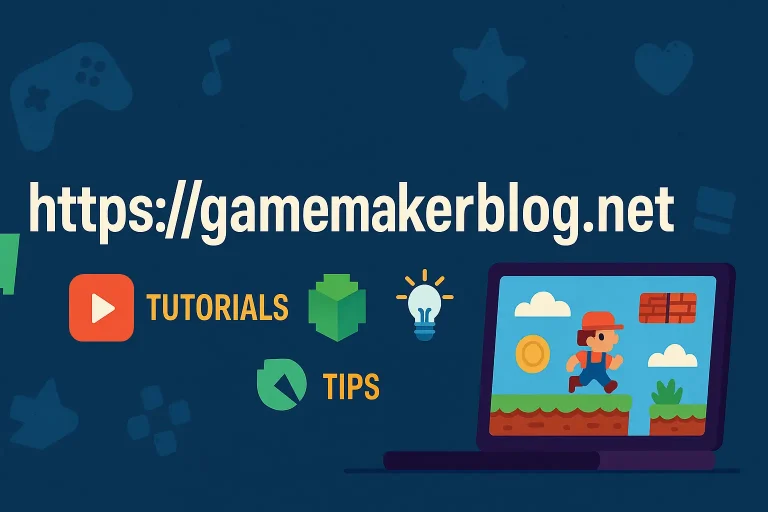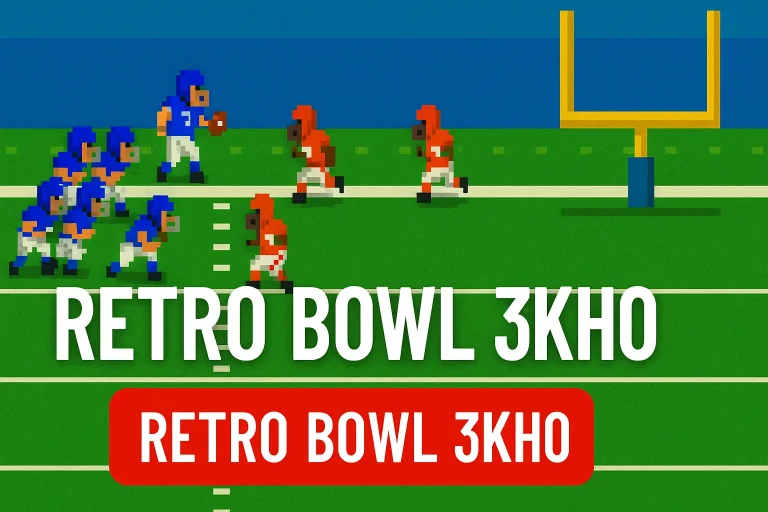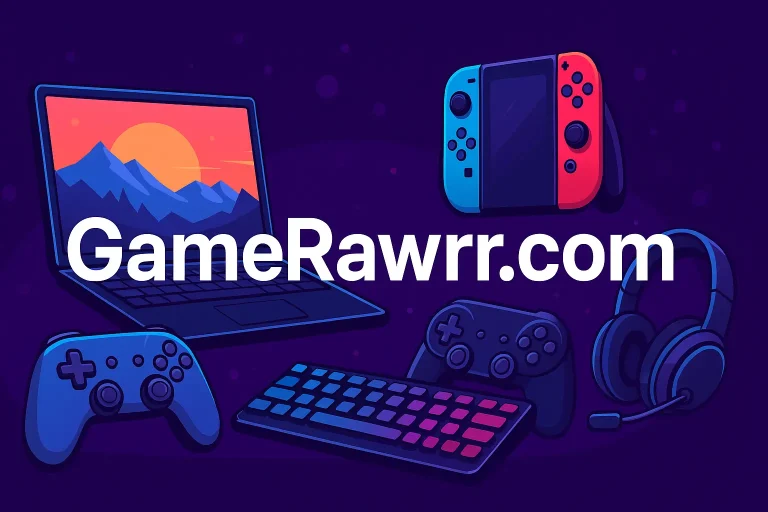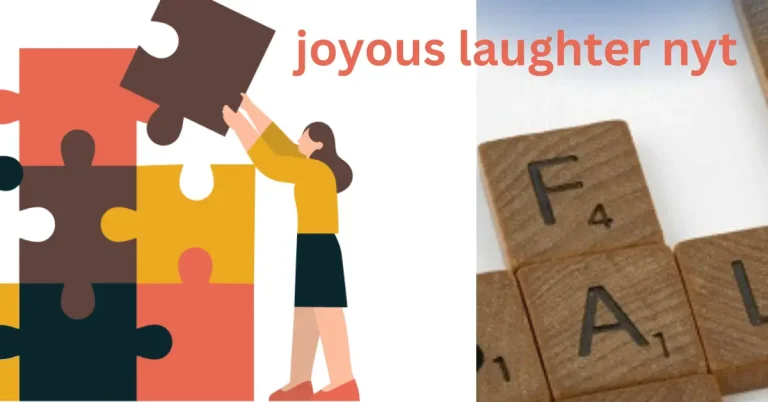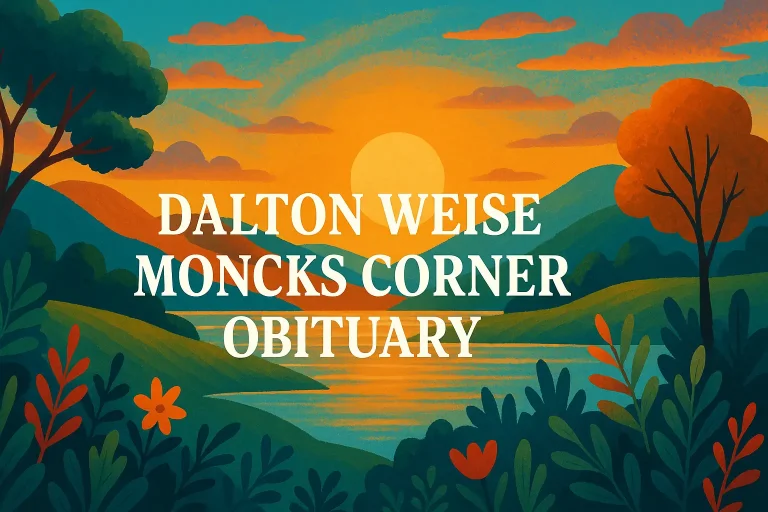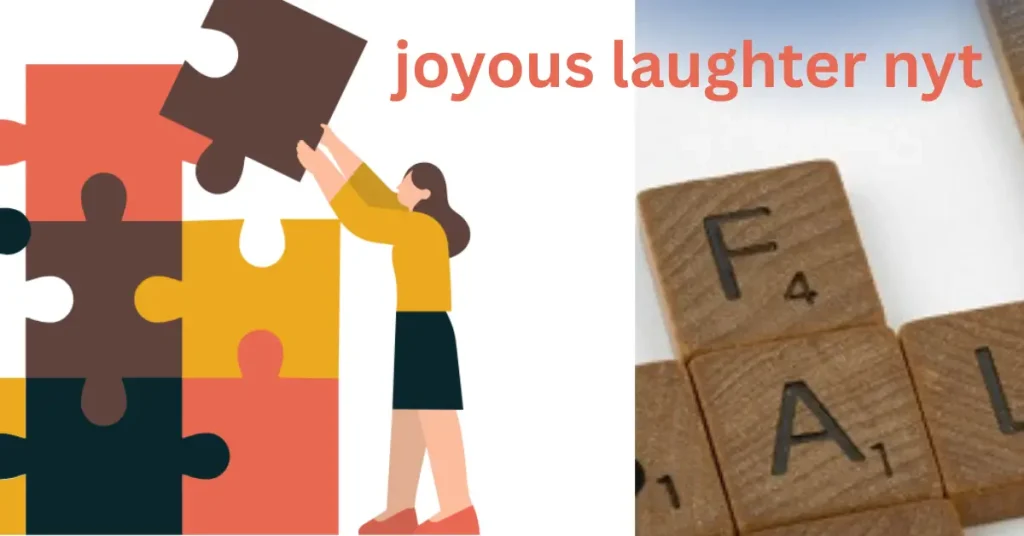
Crossword puzzles are more than a pastime. They are joy, connection, and brain-boosting brilliance all wrapped into a neat little grid. At the center of this experience lies the iconic NYT Mini Crossword, where every clue becomes a mini adventure. One clue that recently sparked a wave of excitement and curiosity is “Joyous Laughter”—a prompt that led many to pause, reflect, and eventually smile when they uncovered the answer: MIRTH.
This clue, like so many in the New York Times (NYT) crossword, invites solvers into a world where language, history, humor, and psychology intersect. Let’s dive deep into what made this moment—and the puzzle around it—so unique and delightful.
What Does “Joyous Laughter” Mean in the NYT Crossword?
In the context of the NYT Mini Crossword, “Joyous Laughter” isn’t just a definition. It’s a doorway into forgotten language, classic emotions, and hidden connections. This clue nudged solvers to think beyond the obvious and lean into a more poetic, old-fashioned realm of vocabulary.
The correct answer, MIRTH, captured the hearts of solvers because of its rarity and charm. It encapsulates laughter and happiness in a single, elegant word. Many solvers may never use “mirth” in daily speech, but seeing it reappear in a modern digital puzzle evokes an uplifting blend of nostalgia and satisfaction.
Also Read: https://fizzymag.co.uk/tommy-mottola-net-worth/
Breaking Down the Clue: A Solver’s Perspective
For those tackling the Joyous Laughter crossword clue, the journey often started with guesswork—”giggle,” “chuckle,” “glee.” But when those didn’t fit, solvers had to work smarter, using other filled clues as anchors.
As Dot Esports reported, solvers often discovered the last two letters first. This unusual sequence threw many off, especially since “mirth” isn’t commonly spoken. But with logic, elimination, and pattern recognition, it eventually clicked—creating that signature “aha” moment every solver loves.
Why “MIRTH” is the Perfect Answer
- It’s precise: MIRTH is a direct synonym for joyous laughter.
- It’s classic: The term dates back centuries, adding a literary flair.
- It’s unexpected: Rarely used today, it surprises and delights.
- It teaches: It boosts vocabulary and encourages curiosity.
- It feels good: Discovering an uncommon word is immensely satisfying.
The Origin and Rarity of the Word MIRTH in Modern Language
MIRTH comes from the Old English “myrgth,” meaning joy or pleasure. Once popular in literature and poetry, it has become a charming rarity in modern conversation.
Its occasional reemergence in puzzles like the NYT Mini Crossword reminds solvers of the richness and depth of the English language. Words like these connect us to historical contexts, literature, and the ever-evolving nature of human expression.
How Crossword Clues Stimulate Brain Activity and Joy
- Activates memory recall and problem-solving regions of the brain.
- Releases dopamine, creating a pleasurable reward loop.
Every crossword clue, especially abstract ones like “Joyous Laughter,” encourages pattern recognition, inference, and lateral thinking. This mental workout fosters cognitive health and emotional satisfaction.
Wordplay and Humor: The Art Behind Crossword Puzzle Crafting
The NYT crossword is famous for its cleverness. Clues often involve puns, homonyms, double meanings, and cultural references. “Joyous Laughter” is simple but layered, inviting multiple interpretations until the solver finds the perfect match.
This artful ambiguity is what makes crossword puzzles magical. They are not just tests of knowledge but of wit, intuition, and a touch of humor. Crossword humor is real, and it’s powerful.
Solving Strategies for the NYT Mini Crossword Clues
Success in crossword puzzles often comes from strategy. Experts recommend:
- Starting with short, obvious answers to build momentum.
- Using known letters to infer unknown ones.
- Recognizing patterns in classic crossword terminology.
Whether you’re new or seasoned, these puzzle-solving techniques will enhance your experience and improve your odds of solving even the trickiest clues.
How the Joyous Laughter NYT Clue Reflects Classic Puzzle Design
- Nostalgic word usage (MIRTH).
- Emotional and abstract phrasing.
- Multi-level interpretation encouraging deeper thought.
The clue “Joyous Laughter” is a shining example of classic crossword design. It reflects a balanced blend of difficulty, emotion, and language depth—hallmarks of the New York Times Crossword legacy.
Understanding the Daily Crossword Difficulty Curve
The NYT Crossword famously increases in difficulty throughout the week. Monday is easiest; Saturday and Sunday are true challenges. The NYT Mini, though smaller, follows similar trends.
This approach appeals to both beginners and puzzle veterans. The curve keeps things fresh and motivating, creating a daily rhythm that balances effort with enjoyment.
Benefits of Solving Crossword Puzzles for Mental Health
- Enhances vocabulary and general knowledge.
- Reduces stress and boosts mood with every correct answer.
Crosswords engage the brain in meaningful ways. Solving them can stave off cognitive decline, support neuroplasticity, and offer therapeutic value. A daily crossword habit is a self-care ritual for many.
The Role of Dopamine in Crossword Puzzle Satisfaction
Cracking a tough clue releases dopamine—a chemical linked to reward and motivation. Each mini win feels like a personal triumph, even more so with clues like “Joyous Laughter.”
This neurological reward system explains why people return to puzzles day after day. It’s mental fitness with emotional payoff.
Crossword Puzzles as a Digital and Mobile Gaming Trend
Thanks to apps and web platforms, crosswords are now more accessible than ever. The digital crossword experience includes features like hints, timers, and even social sharing.
The NYT Mini Crossword fits neatly into the modern attention span, providing a fulfilling challenge in just minutes. It’s a perfect example of how classic games adapt and thrive in the tech age.
Exploring the Social and Community Side of Crossword Solving
Puzzles are no longer a solitary pursuit. Crossword community forums and social media have transformed solving into a collaborative, celebratory experience.
From sharing tips to laughing over tough clues, crossword culture is vibrant and supportive. Families, couples, and coworkers solve together, turning puzzles into joyful bonding moments.
Why the NYT Crossword Still Dominates in a Digital Era
- Trusted editorial quality and puzzle craftsmanship.
- Seamless app and mobile integration.
- Daily consistency and cultural relevance.
Despite a flood of crossword game apps, the NYT Crossword reigns supreme. Its credibility, historical value, and innovation continue to captivate puzzle lovers worldwide.
Crossword Clue Decoding: Tips for Handling Abstract Phrases
Abstract clues like “Joyous Laughter” require creative interpretation. Think emotions, synonyms, context, and tone.
Train your mind to consider alternate meanings and wordplay. Over time, you’ll crack these clues faster and feel the rush of insight that makes puzzles addictive.
Behind the Scenes: How Crossword Puzzles Are Curated
Every NYT crossword is meticulously edited. Editors ensure fair difficulty, cultural sensitivity, and cleverness. They balance tradition with freshness.
The team behind the puzzles takes great care in choosing words that are inclusive, fun, and educational. This professional curation builds the trust solvers place in the NYT.
The Evolution of Crossword Clues Over the Decades
Crosswords have evolved from simple definitions to layered riddles. Clues now include pop culture, slang, foreign languages, and abstract concepts.
The clue “Joyous Laughter” is part of this trend—elegant yet elusive. It speaks to how puzzles have grown to match our changing language and lifestyles.
Comparing NYT Crossword with LA Times and Washington Post
The LA Times Crossword is known for its thematic creativity. The Washington Post Crossword emphasizes wit and wordplay.
The New York Times Crossword, however, offers a balanced blend of difficulty, consistency, and cultural relevance, making it the gold standard in the puzzle world.
Beyond MIRTH: Other Quirky and Obscure Crossword Answers
The NYT often includes gems like:
- “ERST”
- “OLIO”
- “AGORA”
- “ETUI”
These words might seem strange, but they add charm and learning opportunities. They challenge solvers to stretch their minds and appreciate the quirks of English.
How Puzzle Games Like Strands and Spelling Bee Complement the NYT Mini
- Quick, daily challenges that boost word knowledge.
- Fun for individuals or families; low barrier to entry.
Strands and Spelling Bee, also from NYT Games, offer creative and engaging variations of word puzzles. Together with the Mini, they form a powerhouse trio of brainy fun.
Crossword Solving as a Family or Group Activity
Collaborative puzzle solving brings people together. Whether over breakfast or through video chat, sharing the thrill of a good clue creates connection.
Families and friends solving the Mini or Sunday puzzle develop communication, teamwork, and collective joy. Crossword solving becomes a cherished ritual.
What Makes a Crossword Clue Memorable or Viral
Memorable clues are emotionally resonant, cleverly worded, or unusually obscure. “Joyous Laughter” stands out because it is all three.
When a clue surprises, delights, or challenges in just the right way, it gets shared, tweeted, and discussed—spreading the joy far beyond the grid.
How Obscure Words Enhance Vocabulary Through Play
- Introduces rare or archaic words (e.g., MIRTH, ETUI).
- Encourages curiosity and contextual learning.
Crossword puzzles are an exceptional form of vocabulary building. They teach without preaching, letting players discover new words in joyful, memorable ways.
The Enduring Legacy and Cultural Impact of the NYT Crossword
Since 1942, the NYT Crossword has shaped pop culture and intellectual play. It’s been referenced in films, TV, and literature.
Clues like “Joyous Laughter” highlight its ability to blend simplicity with depth. It’s a daily ritual for millions, offering a sense of order, discovery, and happiness.
FAQs
What is the answer to the “Joyous Laughter” NYT clue?
The answer is MIRTH.
Why is MIRTH not commonly used today?
It’s an older English term, more common in literature than modern speech.
Are NYT crossword puzzles good for your brain?
Yes! They improve memory, vocabulary, and mental agility.
Can crossword puzzles reduce stress?
Definitely. Solving puzzles is relaxing and releases dopamine.
What are some alternatives to the NYT Mini Crossword?
The LA Times, Washington Post, Strands, and Spelling Bee are excellent.
Final Thoughts
The Joyous Laughter NYT crossword clue may be small in size, but it brings immense joy. It teaches us the beauty of language, the thrill of discovery, and the joy of solving something together. From MIRTH to mind games, from clue to community, the puzzle is more than a game—it’s an experience.
So the next time you see a cryptic or abstract clue, smile. Because somewhere in that grid is a little joy waiting to be uncovered.
